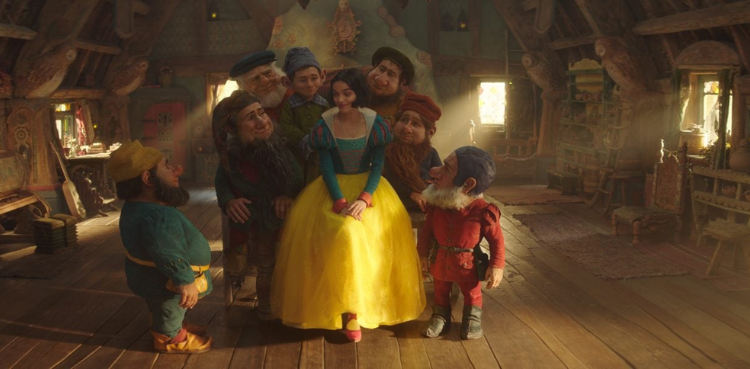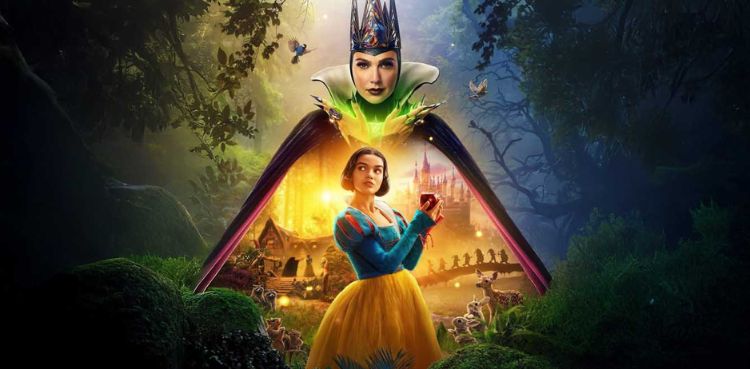Disney’s newest live-action remake, Snow White, is a textbook instance of how compelled progressivism and company pandering can drain the soul out of a beloved fairy story.
Whereas the movie boldly reimagines its heroine as a fiercely impartial warrior-princess—eschewing the unique’s romantic idealism—it fails to interchange that traditional allure with something significant.
As an alternative, audiences are left with a visually sterile, emotionally vacant spectacle that prioritizes political messaging over storytelling. Rachel Zegler’s Snow White could not want a prince, however the movie desperately wants a cause to exist past Disney’s shallow try and test off fashionable inclusivity bins.
A Story Stripped of Its Coronary heart
The 1937 animated Snow White and the Seven Dwarfs was a landmark achievement, mixing enchanting visuals, memorable songs, and a timeless fairy-tale heat. This remake, nevertheless, seems like a guidelines of corporate-mandated “updates” somewhat than a labor of affection. Gone is the fragile stability of innocence and peril that made the unique so charming—changed by a generic “girlboss” narrative that lacks depth. Snow White’s journey not feels natural; as a substitute, it’s a manufactured empowerment arc, full with clunky dialogue about self-reliance that sounds extra like a company range seminar than a fairy story.
Director Marc Webb, whose earlier work consists of the middling Superb Spider-Man movies, appears ill-suited for a musical fantasy. His path lacks the whimsy and visible splendor required for a narrative about magic mirrors and enchanted forests. The movie’s CGI-heavy world feels synthetic, with the dwarfs (now awkwardly known as “magical creatures” to keep away from offending fashionable sensibilities) rendered via unconvincing performance-capture. The choice to sideline the dwarfs—as soon as the center of the story—in favor of a bland, politically right rewrite robs the movie of its most adorable characters.

The Curse of Woke Tokenism
Disney’s obsession with “modernizing” its classics has reached a breaking level. Slightly than crafting nuanced, organically progressive tales, the studio slaps on superficial adjustments that usually contradict the supply materials. Snow White’s authentic story was one in every of kindness triumphing over vainness—a common theme. However this remake reduces her to a inventory “robust feminine character,” devoid of the gentleness that made her iconic. In the meantime, the Evil Queen (Gal Gadot) is all type and no substance, missing the chilling presence of the animated model.
The movie’s musical selections additional spotlight its id disaster. Whereas it retains classics like Heigh-Ho and Whistle Whereas You Work, they’re drowned out by overproduced new tracks that really feel like rejects from Frozen or Tangled. The exclusion of Sometime My Prince Will Come—a deliberate snub to the unique’s romanticism—sums up the movie’s misguided strategy. As an alternative of reinterpreting the track to suit a extra impartial Snow White (as Frozen did brilliantly with Love Is an Open Door), Disney merely erases it, as if ashamed of its personal legacy.
A Field Workplace Spell Doomed to Fail?
The controversy surrounding Snow White has been virtually as dramatic because the movie itself. From Zegler’s dismissive feedback in regards to the authentic to the awkward dealing with of the dwarfs’ portrayal, the PR rollout has been a catastrophe. Early evaluations have been scathing, with critics panning its lifeless execution and lack of magic. Households could go for Kung Fu Panda 4 or Dune: Half Two as a substitute, leaving Snow White to face the identical destiny as Unusual World and Lightyear—field workplace failures blamed on “viewers bias” somewhat than poor filmmaking.
A Kingdom Misplaced to Woke Alchemy
Disney’s Snow White remake is a cautionary story of what occurs when a studio values political posturing over storytelling. As an alternative of enhancing the unique’s themes with recent perspective, it strips them away, abandoning a hole shell of corporate-approved “progress.” The movie’s failure isn’t as a consequence of its feminist message—Frozen, Moana, and Courageous proved that audiences love empowered heroines—however as a result of it prioritizes messaging over magic. In attempting to please everybody, Disney has happy nobody, delivering a movie that feels neither devoted nor daring—simply forgettable.
If that is the way forward for Disney’s live-action remakes, maybe it’s time to cease digging up the previous and begin telling new tales. Till then, the fairest one in every of all stays the 1937 traditional—untouched by the studio’s misguided makes an attempt to “repair” what was by no means damaged.

